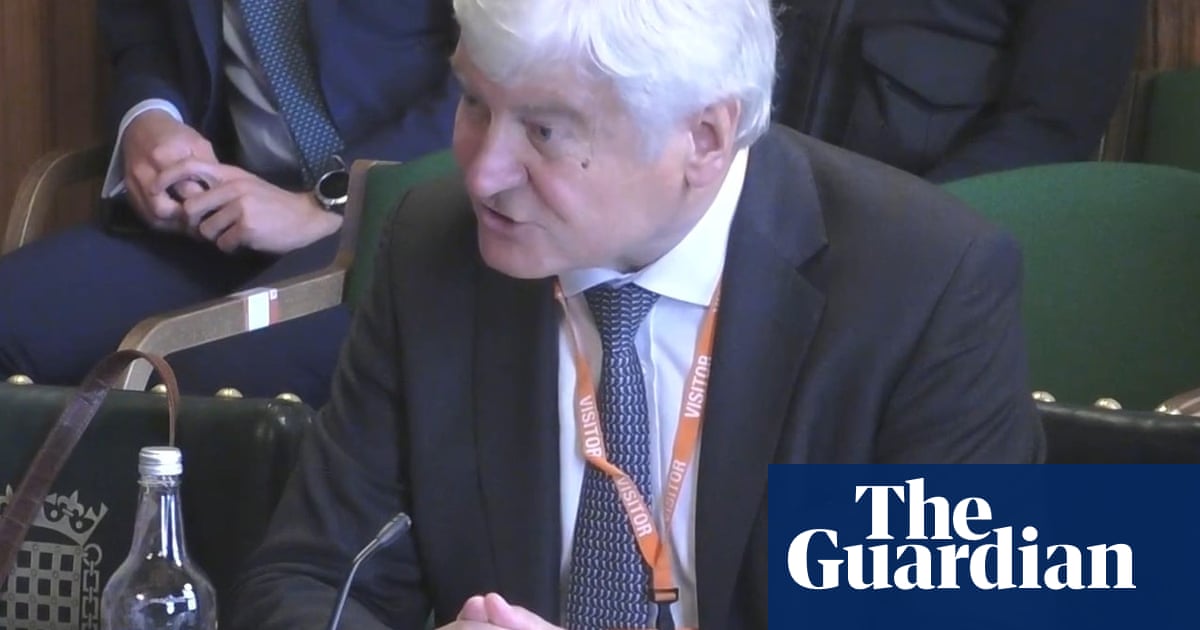The chair ofThames Watercould face more questions over his statement to parliament that large bonuses to be paid to senior bosses out of an emergency £3bn loan were insisted upon by creditors.
Sir Adrian Montague told the environment, food and rural affairs (Efra) select committeelast weekthat the lenders had insisted that “very substantial” bonuses of up to 50% of salary should be paid to company executives from the controversial loan in order to retain key staff.
The proposed bonuses provoked fury as the company has said itsfinances are “hair-raising”and that it came “very close to running out of money entirely” last year.
Sources and court documents suggest the bonuses were agreed to by the creditors but not necessarily proposed by them.
Sources close to Thames said it was executives at the company who pushed for the retention incentives and said all decisions ultimately had to be made by a committee on Thames’s board of directors that is responsible for remuneration.
The term sheet for the loan simply agrees that retention payments could be a factor at some point, and this was agreed to and not insisted upon by creditors. Sources close to the lenders also said accessing the loan was not contingent on paying bonuses to Thames executives.
Montague will not be among the executives paid the retention incentives, it is understood.
Montague told the Efra committee last week that senior managers were the company’s “most precious resource” and that the group of lenders had asked for the retention payments.
He said: “To be honest, this is the first time that I have encountered this. I have done a few reconstructions in my time, and I do not think we would have got there but for the fact that the lenders insisted, should we say.” He added that the bonuses linked to the £3bn loan “will be funded by the lenders” and not customers.
In a judgment in February approving the loan, Mr Justice Leech cited evidence by Thames’s then finance director, Alastair Cochran, that the retention plan “was a matter for the board and the retention committee”. Leech said there was no evidence that it had to be approved by the lenders.
A Thames Water spokesperson said in a statement: “Thames Water is progressing a complex turnaround and restructuring process so we can deliver better results for our customers and the environment and seek a long-term solution to our financial resilience.
“During our liquidity extension discussions it was agreed that a retention plan was important to retain the people best placed to deliver the improved outcomes our stakeholders rightly expect during this current period of uncertainty and this was reflected in the term sheet we agreed with our creditors on 25 October 2024.”
The company declined to repeat Montague’s assertion or go beyond its statement.
The UK’s largest water company is in a desperate race to raise funds and persuade the water regulator to let it offhundreds of millions of pounds of finesor risk being renationalised. The company won a court battle that allowed it to accept the loan, which comes with an expensive 9.75% interest rate and fees.
Sign up toBusiness Today
Get set for the working day – we'll point you to all the business news and analysis you need every morning
after newsletter promotion
The Guardian revealed last week that the bonuses could be the first to beblockedunder the government’s water (special measures) bill, which gives the regulator Ofwat powers to ban financial rewards for executives presiding over a failing company. Thames Water could be classed as such, as it is presiding overrecord sewage spills, is heavily laden with debt and on the brink of financial collapse.
The environment secretary, Steve Reed, said last week: “The days of profiting from failure are over.”
Thames is trying to argue that the bonuses are not performance-related pay as they are retention payments, but ministers insist they will still be able to block them under the new rules, and have said this proposal is a “crude attempt” at clinging on to bonuses. Aconsultationon the new bonus rules is ongoing and ministers hope they will be in place by June.
Alistair Carmichael, the chair of the Efra committee, said: “This is a serious matter which my committee will look at carefully. The government has already stated it expects Ofwat to block the bonuses discussed in our hearing with Thames Water last week. We look forward to discussing these and other developments relating to the water sector in our evidence session with the secretary of state on Tuesday.’
A spokesperson for the creditors declined to comment.
The company, which serves about a quarter of the country’s population, is loaded with £20bn in debt and is now in exclusive discussions with the private equity group KKR over a potential purchase of the business.
